Hello and welcome!
This past weekend, we held our annual vocation discernment retreats for Pope St. John XXIII National Seminary and St. John’s Seminary in different locations.
Friday, I visited the group at Pope St. John XXIII. I celebrated Mass and gave a talk for the about 14 retreatants who were there for two days of discernment.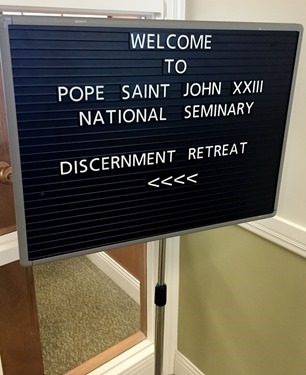
While I was there I had an opportunity to see the new library wing at Pope St. John Seminary, which has turned out just marvelously.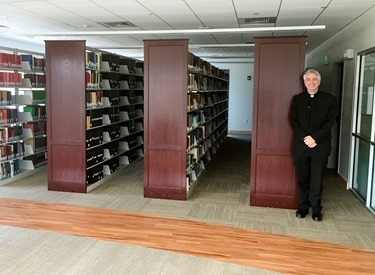
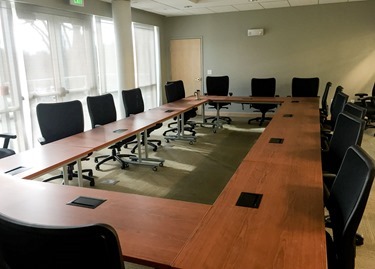
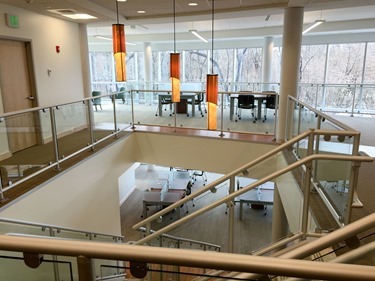
From there, I went to the St. John’s Seminary discernment retreat held at the Betania II retreat center in Medway. I stayed with them Friday evening and all day Saturday. A large number of seminarians also participated and, in addition to the conferences that I gave, the men also had a number of witness talks and discussions with the seminarians.
We ended both retreats on Sunday by bringing the two groups together for the community Mass at St. John’s Seminary. That Mass was also the occasion to institute 13 new acolytes.



– – –
Tuesday, I joined our auxiliary bishops and episcopal vicars to celebrate Mass with the residents of Regina Cleri, the archdiocese’s retirement residence for priests.
Since we were planning to all be together for the Mass, we decided to use the occasion to hold one of our regular auxiliary bishops’ meetings and afterwards we celebrated Mass together.
We had a beautiful celebration and afterwards I visited some of the men in the infirmary before joining the community for dinner.
– – –
Wednesday, I was happy to welcome a few visitors to the Cathedral.
First, I met with Luciano Lamonarca president of the St. Pio Foundation. Though Luciano is from the area of Italy that Padre Pio is from, this is a foundation in the United States, which works particularly with the hospital that Padre Pio founded in San Giovanni Rotondo, the Casa Sollievo della Sofferenza (The Home for Relief of the Suffering). 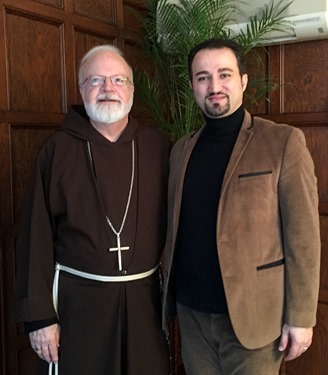
He came to talk with me a little bit about the foundation’s work and some of their ongoing projects.
– – –
Then I was visited by Lucy McGovern and William Wise. Lucy is the Executive Director at ICMC, the International Catholic Migration Commission, which aids refugees and assists them in resettlement. 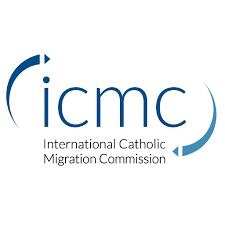
She had been in Juarez, Mexico for the Holy Father’s visit and wanted to speak to me about their work on behalf of refugees.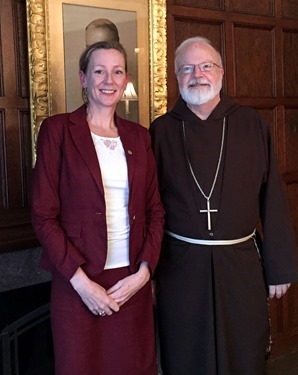
– – –
Recently, I had the opportunity to view a screening a new feature film called The Young Messiah, which presents a glimpse into what the lives of the Holy Family would have been like as they returned to Nazareth from Egypt. 
The movie allows us to figuratively walk with Jesus as he comes to understand that he is the Son of God, set apart from all others to fulfill the promise of salvation for mankind.
The movie will premier in the Boston area on March 10 in Framingham, hosted by The Society for the Propagation of the Faith as a benefit for children in the missions. Free tickets to the premier are available at this link or by signing in at www.propfaithboston.org.
Seeing this film is a wonderful way to spread the Gospel through the use of the media.
https://vimeo.com/156807283
– – –
Also this week, we had one of our regular meetings of the Archdiocesan Pastoral Council. As always, we dealt with a number of topics but one of them of particular interest this week was the work of one of our parishes in helping to settle Syrian refugees.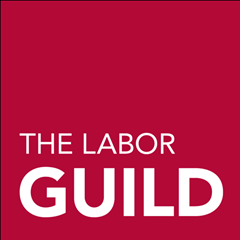
We also had a presentation on the work of the Labor Guild, which is now housed at the Pastoral Center. Labor Guild director Allison Every gave a very stirring account of the history and importance of the Guild, which has trained over 50,000 people involved in union activity on the part of labor, management and arbitration in the 70 years since it was founded by Cardinal Cushing.
Until next week,
Cardinal Seán
